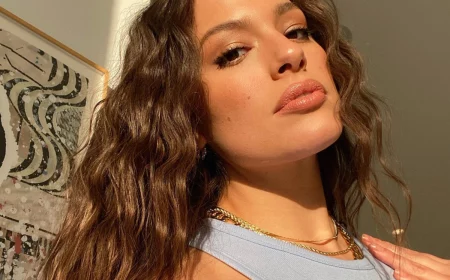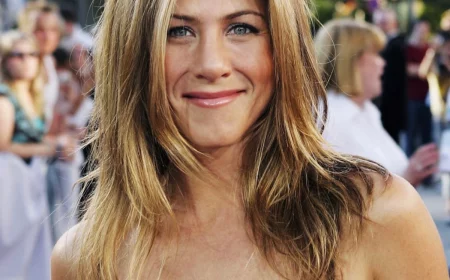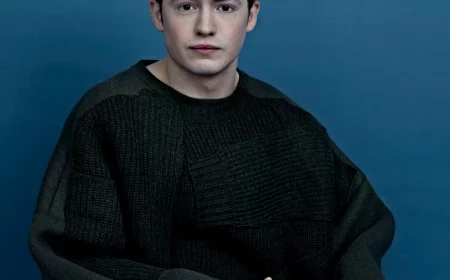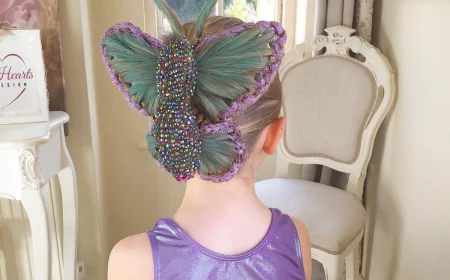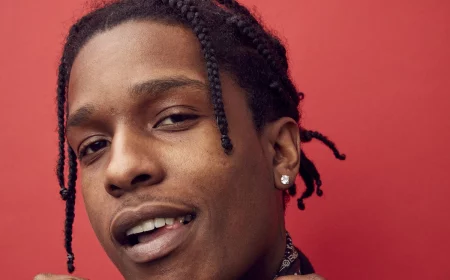A Barber’s Guide to Boys’ Haircuts: Getting the Look You Actually Want
I’ve been standing behind a barber chair for a long, long time. Long enough to see trends circle back around and to give a toddler his first trim, only to be giving him a sharp fade for his graduation years later. Honestly, there’s nothing quite like it. This job is way more than just cutting hair; it’s about shaping confidence and helping a kid feel awesome in his own skin.
In this article
So many parents slide into my chair, phone in hand, showing me a picture of the perfect haircut. The thing is, there’s often a huge gap between that photo and the reality of their son’s hair. My job is to be the bridge.
And that’s what this guide is all about. We’re going to skip the fluff and get right into what makes a haircut work—or not. We’ll talk hair types, the tools of the trade, and how to have a chat with your barber that gets you exactly what you want. Let’s get you feeling confident before the clippers even turn on.

First Things First: The Hair You’re Working With
Before you can even dream about a specific style, you have to get real about the canvas. A truly great haircut doesn’t fight the hair; it works with it. Trying to force hair to do something unnatural is just a recipe for a frustrating morning routine. The two biggest players here are hair texture and those pesky growth patterns.
Hair Texture and Density
When I first run my hands through a kid’s hair, I’m feeling for two things: how thick each strand is (texture) and how many strands are packed in there (density).
- Fine Hair: These strands are skinny and soft. This type of hair loves to lie flat and can make getting any kind of volume a real challenge. For fine hair, you usually want shorter, textured cuts to fake the look of thickness. Heads up: heavy gels or pomades will weigh it down in a second.
- Medium Hair: This is the sweet spot. It’s got more body than fine hair, holds a style like a champ, and is pretty much up for anything. From a barber’s perspective, it’s the most versatile and easiest to work with.
- Coarse Hair: The individual strands are thick and strong. This hair has tons of natural volume and can be stubborn. Cut it too short, and it might just stand straight up. Fades and super short styles are great, but so is leaving enough length on top to give it some weight to lie down.
Oh yeah, and density is just as important. A boy might have fine hair, but tons of it, making it seem thick. Or he could have coarse hair that’s a bit sparse, making his scalp easy to see. I have to check this out to decide how short I can go on the sides without it looking patchy—unless, of course, a skin fade is what you’re going for.

Cowlicks and Whorls: The Real Bosses
Hair doesn’t just grow down; it grows in all sorts of directions. Those little spirals and stubborn spots—cowlicks and whorls—are in charge of the whole operation. I can’t tell you how many times a parent has asked me to “just chop off the cowlick.” If only it were that simple! A cowlick is a growth pattern, and if you cut it too short, the hair in that spiral will just stick straight up, defiant and proud. It’s one of the first hard lessons you learn in this trade.
A good barber knows you have to outsmart the cowlick, not fight it. Sometimes that means leaving a little more length in that spot to weigh it down. Other times, we can use texturizing shears to slice into it and break up its strength. Honestly, managing these growth patterns is what separates a decent haircut from a great one that actually looks good as it grows out.

How to Talk to Your Barber (So They Actually Listen)
The five-minute chat before the cut starts? That’s the most important part of the whole appointment. It prevents weeks of haircut regret. Bringing a picture is awesome, but knowing a few key terms is even better.
- Taper vs. Fade: People mix these up all the time. A taper is a gradual shortening of the hair, usually finishing with a soft, natural-looking hairline at the neck and sideburns. A fade is more dramatic. It also gets gradually shorter, but it goes all the way down to the skin (a skin fade) or very close to it. Fades are sharp, clean, and high-contrast.
- Clipper Guard Numbers: Those little plastic things we snap onto the clippers have numbers for a reason. They represent 1/8 of an inch. A
1 guard leaves 1/8″, a
2 leaves 1/4″, a
3 leaves 3/8″, and so on. If you know your son likes a
2 on the sides, saying that is music to our ears.
- Scissor Cut vs. Clipper Cut: A clipper cut gives you that short, uniform buzz. A scissor cut, especially when done with a comb (we call it scissor-over-comb), allows for more length, softness, and texture. Most modern cuts are a combo of both.
- Textured vs. Blunt: A blunt cut is snipped straight across, giving a solid, clean line. A textured cut uses special techniques to create a mix of shorter and longer pieces. This adds movement and makes it way easier to get that messy, spiky, or piece-y look.
But the most important thing? Be open to advice. After I see your picture and feel the hair, I might say, “This is a great look. Just so you know, his hair is a lot finer than the kid in the photo, so we’ll need to leave it a bit longer on top to get that volume.” That’s not a criticism; it’s me trying to get you the best possible haircut that will actually work in real life.

A Practical Guide to Popular Boys’ Haircuts
Alright, let’s get down to it. Here are some of the most common cuts I do every single day, broken down from my side of the chair.
1. The Classic Crew Cut
This is a timeless classic for a reason. It’s clean, easy, and about as low-maintenance as it gets for daily styling. I recommend this all the time for active kids or for parents who just want something neat and simple.
- The Look: Short on the sides and back (but not buzzed to the skin), with a bit more length on top that gets shorter as you move toward the crown.
- How to Ask for It: “I’d like a traditional crew cut. Let’s do a
2 or
3 on the sides with a soft taper at the neckline. On top, about an inch in the front, scissor-cut to blend into the shorter back.”
- Best For: Medium to coarse hair. It works on most head shapes, but can make fine hair look a little thin.
- Time & Money: This is a quick one, usually about 20 minutes in the chair. Expect to pay between $25 and $35 in most barbershops. The catch? To keep it looking sharp, you’ll be back every 3-4 weeks.
- Barber’s Warning: The tricky part is the blend between the longer top and the short sides. A bad crew cut has a “shelf” look. We use a clipper-over-comb technique to make that transition seamless, something that’s nearly impossible to nail at home.

2. The Modern Fade with Texture on Top
This is, without a doubt, the most requested style in my shop right now. It’s the best of both worlds: super clean on the sides with a top you can actually style.
- The Look: The sides are faded from a very short length (sometimes right down to the skin) up to a much longer top, usually 2 to 4 inches. The top is cut with a lot of texture.
- How to Ask for It: “We’re looking for a medium skin fade on the sides. On top, can you leave about 3 inches and add a lot of texture so he can style it messy?” Pro tip: Use your finger to show the barber exactly where you want the fade to start (low, mid, or high).
- Best For: Medium to coarse hair with good density really makes the contrast pop. Great for round or square face shapes.
- Time & Money: A good fade takes time and artistry. Plan for 30-45 minutes in the chair. Because of the skill involved, this cut typically costs more, around $35 to $50+. The fade needs a touch-up every 2-3 weeks to stay crisp.
- Barber’s Warning: Be careful asking for a “high fade” on a young kid. It can be a very severe look that takes the hairline way up. Also, a common mistake is a hard line in the fade. A good barber spends extra time blending that line until it completely vanishes. For styling, a matte paste or clay is your best friend. I usually recommend something like American Crew’s Forming Cream or Pacinos Matte Paste.

3. The Classic Scissor Cut (aka The Shag or Mop Top)
Hey, not every kid wants or needs clippers. For a softer, more traditional vibe, an all-scissor cut is a fantastic option. It’s especially great for kids with wavy or fine hair that looks better with some length.
- The Look: The hair is cut entirely with scissors, leaving at least 2-3 inches of length all over. The shape is softer, with layers to add movement and control the bulk.
- How to Ask for It: “We’d like an all-scissor cut, no clippers, please. Let’s keep about 3 inches of length and add some light layers so it has a natural, shaggy look.”
- Best For: Fine to medium hair, either straight or wavy. Coarse hair can get really poofy with this style unless it’s properly thinned out.
- Time & Money: This cut is all about technique, not speed. It can take a solid 30 minutes. The cost is usually in the $30 to $40 range. The best part? It grows out beautifully, so you can stretch appointments to every 6-8 weeks.
- Barber’s Warning: The danger here is the “bowl cut” look. A good barber will cut layers and texturize to create a shape that moves, rather than just a solid helmet of hair. It should look good even when it’s a bit messy.

4. The Ivy League
Think of the Ivy League as the crew cut’s more sophisticated older brother. The key difference is leaving enough length on top to create a clean side part. It’s a timeless, sharp look that always works.
- The Look: A clean taper on the sides and back, with enough length on top (around 1.5 to 2 inches) to be combed over neatly.
- How to Ask for It: “He’d like an Ivy League. Let’s do a #4 on the sides, tapered down. Please leave it long enough on top to part and comb over. Let’s define the part on his left side.”
- Best For: Straight to slightly wavy hair. It’s tough to get that crisp part with super curly or coarse hair.
- Time & Money: This one is pretty standard, taking about 25-30 minutes and costing around $30 to $40. The sides will need a trim every 4 weeks or so to stay looking neat.
- Barber’s Mini-Tutorial: To style this at home, it’s super easy. (1) Start with damp, towel-dried hair. (2) Use a comb to find the natural part and work in a pea-sized amount of a light pomade. (3) Comb the top over to the side and comb the front up and back slightly. You’re done!

My Two Cents on Common Hair Challenges
Sometimes you run into problems that a standard cut can’t fix. Here’s how I handle a few common curveballs.
Working with Curls
Curly hair is its own beast. You can’t just pull it straight and cut it, because you have no idea where it’s going to bounce back to. I learned a long time ago to respect the curl. For curly-haired kids, I often cut the hair when it’s dry, or at least mostly dry. I snip curl by curl, shaping the hair instead of just hacking off length. This is the only way to avoid creating weird gaps or shelves.
The Dreaded At-Home Haircut
Look, I get it. You’re busy, and you think you can save some money by doing a quick trim at home. I’ve seen some passable bang trims, but I have also seen… things. Horrors. The worst one I ever had to fix was a boy who came in with a bald patch right on the side of his head. His dad had tried to do a fade, sneezed, and the clippers (with no guard!) dug a highway right into the hair. We had to do a high-and-tight buzz cut to even it out, which was NOT what they wanted.

A quick tip: If you absolutely must trim at home, please don’t use kitchen scissors. They’ll just bend the hair and create split ends. Hop on Amazon and buy a pair of proper hair-cutting shears. You can find brands like Equinox or ULG for $20-$30. It makes a world of difference. And please, for the love of all that is good, never try to fade your own hair.
How to Find a Barber Who Actually Gets It
Finding the right barber is like finding a good mechanic—once you do, you stick with them for life. So how do you find one?
First, do a little recon. Check out their social media pages, especially Instagram. Are they posting pictures of haircuts you actually like? Do they show a variety of styles, or just one type of fade over and over? Most importantly, do they post photos of kids’ haircuts? A barber who is proud of their work with kids will show it.

During the consultation, pay attention. Do they just nod and grab the clippers, or do they ask you questions? A good barber will want to know about your son’s hair, your morning routine, and what you liked or didn’t like about his last haircut. It’s a conversation, not an order.
Safety Isn’t Sexy, But It’s Everything
I have to talk about this, because it’s serious. A professional barbershop should be spotless. My tools—every single comb, blade, and shear—are cleaned and then submerged in a hospital-grade disinfectant after every single client. It’s not optional. If you walk into a shop and see clippers with hair still in them sitting on the counter, turn around and walk out.
That story I have about the apprentice who nicked a kid’s ear? It was a tiny cut, but it was a massive lesson for all of us about being mindful and deliberate. A good barber is always focused, especially when working around a child who might wiggle.

Ultimately, choosing a haircut is a team effort. It’s a chat between you, your son, and the person with the shears. Be open to ideas, but be real about your lifestyle. When you find a skilled barber who truly cares about their craft, you’re not just buying a service. You’re making an investment in your son’s confidence. And that’s a great cut at any price.
Inspiration Gallery




My son fidgets in the chair and hates the cape. Any advice?
This is incredibly common! Try a ‘practice run’ at home, draping a towel around his shoulders for a few minutes. On the day, bring a tablet or phone with his favorite show as a distraction. Some barbershops even have special kid-friendly capes or chairs. The key is to associate the experience with something fun, not something to be endured.




- Keep the neckline clean and sharp.
- Tame flyaways with a tiny bit of styling cream.
- Reschedule the next appointment before you leave the shop.
The secret to a cut that looks great for weeks? It’s all in the small maintenance details and proactive planning.




More than 70% of a barber’s job is managing expectations and translating a parent’s vision into a workable style for the child’s specific hair type.
This statistic, often cited in cosmetology schools, highlights why the initial consultation is so crucial. Don’t just show a photo; discuss your morning routine, how much time you want to spend on styling, and be open to your barber’s expert suggestions for modifications.




The Fade vs. The Taper: Many use these terms interchangeably, but they are distinct. A fade gradually gets shorter down to the skin, creating a ‘faded’ or blurry effect. Think of the sharp look often seen with a high-and-tight.
The Taper: This is a more conservative version where the hair also gets gradually shorter, but it doesn’t go down to the skin. It leaves some length at the bottom for a softer, more classic finish. A taper grows out very naturally.



That photo of a celebrity you love might not be the best goal. Why? Professional styling, perfect lighting, and often, a hair type completely different from your son’s. Instead of saying




A word on cowlicks: These stubborn swirls of hair have a mind of their own. A skilled barber won’t fight a cowlick; they’ll incorporate it into the cut. Cutting the hair within the cowlick too short will make it stand straight up. The best strategy is often leaving a bit more length and weight in that area to help it lie down.




For that perfect textured, matte look that’s so popular, the right product is everything. Avoid shiny gels from the 90s and explore modern options:
- Styling Clay: Ideal for adding volume and texture with a no-shine, natural finish. Perfect for messy, piecey styles. American Crew’s Molding Clay is a classic for a reason.
- Styling Paste/Cream: Offers a medium hold with low shine. It’s more pliable than clay and great for controlling thicker hair without making it stiff.
- Sea Salt Spray: The secret weapon for fine or wavy hair. A few spritzes on damp hair create that ‘day at the beach’ texture and body before you even pick up a blow dryer.




The ‘Broccoli Cut’ trend, characterized by short faded sides and a longer, curly mop on top, has its roots in K-Pop and TikTok culture and is now one of the most requested styles by teens.



If your boy has fine hair that falls flat, ask your barber about ‘point cutting’ or using texturizing shears. These techniques remove bulk from the ends of the hair, creating separation and movement. It gives the illusion of volume and makes the hair much easier to style into something other than ‘flat’.




- Show up with clean, product-free hair.
- Avoid hats right before the appointment to prevent ‘hat hair’.
- Have a few inspiration photos ready, but be flexible.
- Make sure your son has used the restroom beforehand!




What exactly is a ‘hard part’?
A hard part is when the barber uses a trimmer or straight razor to shave a clean, sharp line into the hair to define a side part. It adds a modern, graphic element to classic styles like a combover or side-part. It looks incredibly sharp but requires maintenance, as the line will soften and grow out in about a week or two.



For the home touch-up kit: Don’t try to give a full haircut, but you can prolong the life of a professional one. A good kit should include a fine-toothed comb, sharp trimming scissors (not kitchen scissors!), and a small, cordless T-blade trimmer, like the Wahl Peanut, for cleaning up the neck and around the ears between visits.




The classic Crew Cut is military in origin but remains timeless for a reason. It’s short, practical, and always looks neat. The defining feature is that the hair is left slightly longer on top and gets progressively shorter on the sides and back. It’s a lifesaver for parents who want a no-fuss, wash-and-go style that works on almost any hair type.




The modern mullet, unlike its ’80s ancestor, is all about texture and subtlety. Think less ‘business in the front, party in the back’ and more ‘short on the sides, texture on top, and flow in the back.’
This reinvented style, seen on everyone from athletes to actors, works best with wavy or textured hair. It allows for a creative, edgy look that’s surprisingly versatile. The key is the seamless blend from the shorter sides to the longer back, avoiding a stark, disconnected look.




- It adds instant volume to fine, flat hair.
- It creates a dry, matte finish for a natural look.
- It provides a light, reworkable hold.
The secret? A texturizing powder. Products like Big Sexy Hair Powder Play or STMNT Grooming Goods Spray Powder are game-changers. Just a little puff at the roots provides lift and grip that lasts all day.



The first haircut milestone: Make it special! Go during a quiet time of day, like a weekday morning. Bring a Ziploc bag for a lock of hair and be ready with your camera. Focus on celebrating the moment rather than achieving the ‘perfect’ cut. A patient barber and a calm parent are the recipe for a tear-free memory.




Should I wash my son’s hair every day?
For most boys, probably not. Over-washing can strip the scalp of its natural oils, leading to dryness or even overproduction of oil. Unless he’s getting particularly dirty or sweaty every day, washing every 2-3 days with a gentle, sulfate-free shampoo is usually sufficient to keep his hair healthy and manageable.




For Curly Hair: Hydration is everything. Ask your barber to cut the hair dry, or at least re-wet and check it as they go, because curly hair ‘shrinks’ as it dries. A cut that looks perfect when wet can become way too short once dry. Using a leave-in conditioner or curl cream, like those from Cantu Shea Butter, can help define curls and fight frizz without weighing them down.




A study in the ‘Journal of Social and Personal Relationships’ found that hair is a significant factor in first impressions and perceptions of personality, even in childhood.
This isn’t about vanity; it’s about confidence. A haircut a boy feels good in can positively affect how he interacts with his peers and how he sees himself. Letting him have some say in his style is a powerful way to support his self-expression.



Thinking about an undercut? It’s a bold style where the sides and back are clipped very short or even shaved, while the hair on top is left significantly longer. This creates a dramatic disconnect. It’s great for thick hair and offers a lot of styling versatility for the top section—it can be slicked back, worn messy, or styled into a pompadour.




Barbershop vs. Unisex Salon: A traditional barbershop typically specializes in clipper work, fades, and classic short men’s styles. The atmosphere is often focused and efficient. A unisex salon may have stylists who are more experienced with longer hair and advanced scissor techniques. For a sharp fade, see a barber. For a longer, layered shag, a salon stylist might be a better fit.




The dreaded ‘bowl cut’ fear is real. To avoid it, always ask for texture. Modern short haircuts for boys are defined by breaking up solid lines. Phrases to use are:




The French Crop is a fantastic, versatile cut. It’s defined by a short length, usually faded or tapered on the sides, with a distinct, slightly longer fringe that’s pushed forward. It’s neat, stylish, and incredibly low-maintenance, making it a top choice for active kids and busy parents alike. It works well for straight or slightly wavy hair and helps conceal a receding hairline or a high forehead.


A note on a high-quality pomade: If you’re going for a slicked-back or classic side-part look, a water-based pomade is your best friend. Unlike old-school oil-based grease, they provide great hold and shine but wash out easily with just water, preventing buildup on the hair and scalp. Brands like Suavecito or Uppercut Deluxe are industry standards.

